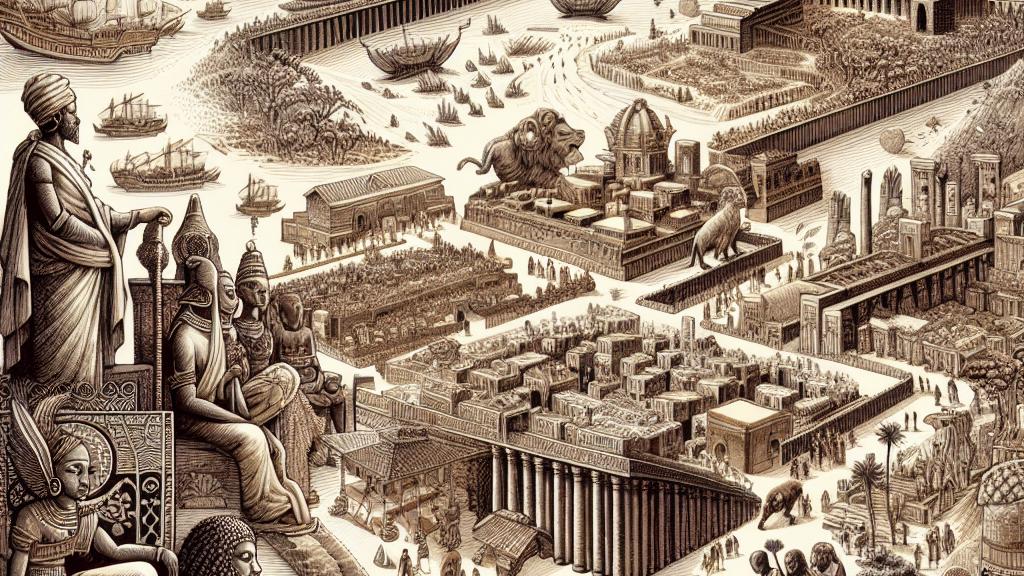Exploring the Story of The Abyssinians: An Audio Drama Set in Ancient Ethiopia
Overview
- Banna Desta brilliantly revives the vibrant Aksumite Empire in her intriguing audio drama.
- The play delves into multifaceted themes of tyranny and leadership, particularly through the fascinating character of Queen Yodit.
- Through engaging storytelling, Desta urges us to reconsider and appreciate Africa's rich and dynamic pre-colonial history.

The Aksumite Empire: A Glimpse into Ancient Glory
Set in the breathtaking landscape of ancient Ethiopia, Banna Desta's audio drama, The Abyssinians, takes listeners on an unforgettable journey into the glorious world of the Aksumite Empire. Picture a civilization that thrived around the 5th century—this was a kingdom that didn't just accumulate wealth; it commanded the trade routes, connecting Africa to Europe and Asia! Remarkably influential, Aksum was the first to introduce coinage in Africa, showcasing its economic prowess. Furthermore, this mighty empire was pivotal in spreading Christianity throughout the continent, making it not only a place of commerce but also a cultural epicenter. The narrative power of The Abyssinians uncovers a reality that often gets overshadowed: Africa has a long and splendid history teeming with achievements that predate colonial narratives.
Queen Yodit: A Complex Character
At the heart of The Abyssinians lies Queen Yodit—a character brought to life with incredible nuance. She is not simply a monarch but a portrayal of complexity, embodying both regal grace and tyrannical ambition. Faced with the heart-wrenching dilemma of choosing between her twin sons, who each seek the throne, Yodit reflects the struggles of a leader in tumultuous times. Echoing the historical Queen Yodit, whose reign was equally marked by controversies, this character's journey allows listeners to explore the nuances of power and gender. Desta’s portrayal raises a fascinating point; she presents a female leader who doesn’t fit the traditional mold of virtue but rather confronts her flaws in a harsh world. It’s a compelling reminder of the essential roles women played in shaping history, often against the backdrop of societal restrictions.
Reshaping Perceptions of African History
Beyond mere entertainment, Desta's work serves a crucial mission: to reshape how we view Africa’s extensive and vibrant history. By illuminating a pre-colonial era, bustling with life, culture, and commerce, she challenges the often narrow narratives that overshadow the accomplishments of African societies. The Abyssinians not only highlights a kingdom's splendor but invites audiences to engage with a broader narrative of resilience and innovation. For instance, as Aksum expanded its territory through both trade and conquest—like subjugating the Kingdom of Meroe—we see a dynamic interplay of power and culture. Desta’s powerful storytelling urges us to reflect on these rich legacies and recognize them as integral to human history. Thus, we are prompted not just to learn but to celebrate the cultural tapestry that is Africa, a call to embrace a fuller understanding of its monumental past!

Loading...